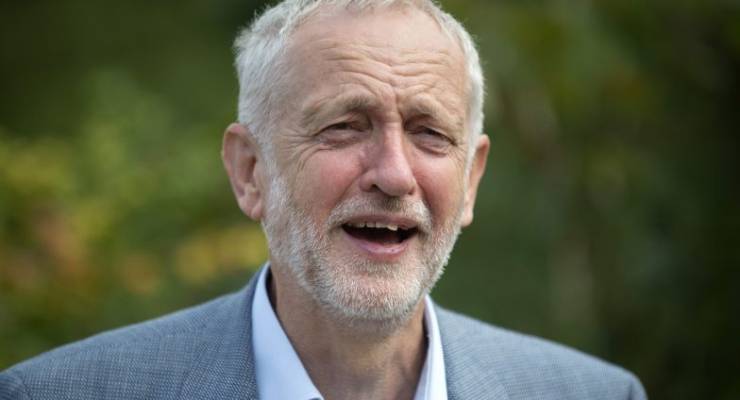
Most Australians are right now fairly exasperated with what they reasonably regard as the infantile, ego-driven behavior of their political leaders. But, in many respects, what is happening is not confined to Australia and is, at base, a product of a shared set of political problems.
In the United States, the election of President Donald Trump captured a sense of rejection of politics as usual by many former conventional voters. By way of counter, the political left of the Democrats appears to be rising to challenge both Trump and also to their own party establishment.
In the United Kingdom, a small majority voted to leave the European Union in a decisive act against their own economic interests, while Jeremy Corbyn represents a populist brand of socialism supported by Labour Party members but not so much by elected Labour representatives.
In Europe, far right parties have claimed political ground in France, Germany, the Netherlands, Greece, Italy and Hungary, and are growing elsewhere. Emblematic of this is, at a time of unprecedented numbers of refugees and internally displaced people — some 67 million, has been a rise in anti-immigration rhetoric and the growth of nationalist sentiment. All of these polarized changes in developed countries reflect a fundamental re-ordering of Western societies and, indeed, of global politics.
A major contributor to the reordering is that globalization and its attendant neo-liberal paradigm has produced clear winners and losers, with growing disparities between rich and poor. And many formerly secure jobs are now being performed by industries in emerging, low-wage economies.
Equally important is the world undergoing rapid and highly disruptive technological change. Combine the two and industries — and futures — that looked stable just a few decades ago now either don’t exist or are on the brink of extinction.
Older, established workers are being thrown on the scrap-heap, or feel vulnerable to that threat. “Jobs for life” have been replaced by multiple careers or cobbling together part-time work to make a viable living. This so-called “precariat” is, reasonably, scared and angry.
These economic and technological changes, and they fear and anger they engender, have impacted directly on the relevance of the legacy political parties, originally founded on the ideological debate between economic distribution — the left — and economic accumulation — the right. Both economic models now scramble for relevance amidst the disruptions that afflict their once loyal voter bases.
The most vulnerable often seek simple answers, if to highly complex problems. Such simple, if incomplete or inaccurate, answers might be found in reactionary immigration/refugee and climate change policies, the former as understood as competition for jobs and the latter as a threat to industries that provide jobs.
Politicians, here, in Europe and the US, adrift from the old value systems, now appear to stand for little but their own aggrandisement. Gravitating to populist banners is, therefore, a viable political option. Yet voters, unsurprisingly, feel less represented by a hollowing out of the representative system, and have doubled down on their own forms of reaction and rejection.
The new divisions, therefore, are less between the old left and right or even moderates and hard-liners. The divisions are now between “progressives”, who see hope in — and can sell — a rapidly changing world, and “reactionaries”, who see threats from the world and seek to shut it out.
The current divisions in the Liberal Party (and to a lesser extent the ALP) are, essentially, between such openness and closure. It was a turn to closure that elected Donald Trump, chose Brexit and has fueled the rise of Europe’s ultra-nationalists.
The question is, then, not so much why this turmoil is happening. The question is what will be its consequences for representative politics as we have come to know it.
Damien Kingsbury is professor of international politics at Deakin University.








Thanks for this interesting analysis.
For me however, the question is, What is to be done?
“Both economic models now scramble for relevance amidst the disruptions that afflict their once loyal voter bases.”
Blah, blah. The economic model of the right is based on neoliberal macro-economics, which in turn pretends that currencies are still backed by gold – a lie. Sadly “the left”, so-called, have swallowed this lie and continue to think that “budgets need to be balanced”, “debt needs to be paid down” etc. The good professor needs to study some basic macro-economics and his facile analysis will be seen for what it is. Once you understand how this neoliberal economics underlies the entire “debate” you can easily understand why things look so complicated. It’s a bit like the early astronomers who tried to make sense of their observations of the stars, while still thinking the earth was the centre of the universe. It just looked so horrendously complicated. Once they discarded that belief and agreed to consider the sun as the centre of the planetary system, everything fell into place. The same will happen if you understand the huge gyrations required to carry on the myth that the currencies we use are backed by gold when they are not, but we continue to pretend that they are.
So the turmoil is caused by the fact that people are no longer convinced that the explanations offered by the “elites” , based on this flawed model, make sense. Unfortunately, in this “explanatory vacuum” any number of fakes, frauds, and charlatans can enter and make hay. Trump is the prime example of this and Nigel Farage and the other “right wing” parties in Europe bear testimony to my analysis.
The only way to counter them is to give a proper explanation of what is happening, but with the “free” press owned by powers that profit by spreading these false explanations, that is going to be hard.